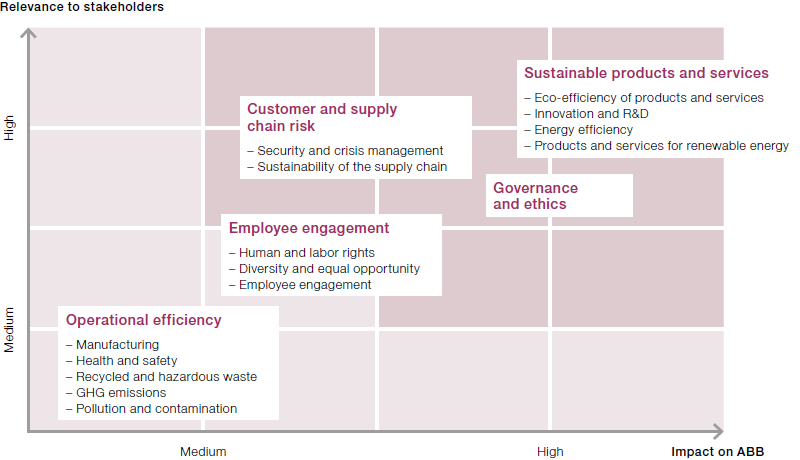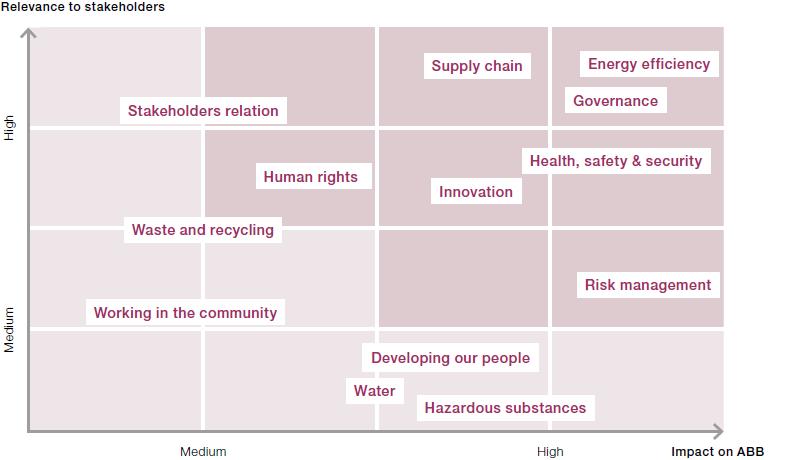Refining our priorities

We have undertaken considerable work in recent years to understand what internal and external stakeholders expect of ABB’s sustainability performance and where they consider that we should focus our strategy and improvement goals.
In 2010/2011, we conducted the widest-ever sustainability stakeholder survey undertaken by ABB. We sought input from nearly 600 people, including senior ABB executives and employees from all parts of the business in different countries, as well as from our customers and external stakeholders specialized in key sustainability areas – the environment, climate change, human rights, health and safety, and security.
2011 materiality matrix

We also benchmarked key sustainability focus areas of peer companies and mapped regulatory risks and macro trends to help us establish a comprehensive sustainability issues landscape. We then scored the relevance to stakeholders of the key issues that had been identified and mapped ABB’s material sustainability-related issues, as shown in the materiality matrix.
Most of these issues were already priorities for ABB, namely energy efficiency, climate change, managing environmental impacts, product innovation, health and safety, human rights, sustainability in our supply chain and working in the community. This materiality matrix then shaped the development of our sustainability strategy.
In 2013, we undertook a further review with our stakeholders to update our assessment of material aspects and to seek their views on how best to report on our sustainability strategy, performance and progress.
2013 materiality matrix

We engaged a third party to interview a total of 40 stakeholders from four broad categories: ABB employees, investors, customers and sustainability experts. All external interviewees had an existing relationship with ABB and, for continuity, 35 percent of these stakeholders had already participated in the stakeholder survey undertaken in 2011. We aimed for a regional and gender balance, with 12 countries across North America, Europe, Asia and Africa represented and 15 women included among the interviewees.
Interviewees were asked to prioritize the material topics identified by ABB as well as any additional topics or trends they believe ABB should address. The results, in the main, confirmed the conclusions from our 2011 consultation. Energy efficiency, governance and integrity, sustainability in the supply chain, health and safety, security, and innovation continue to be considered of high significance for ABB and of high interest to stakeholders.
Other issues showed a broader spread of views. We have placed these issues in the materiality matrix based on further review and validation.
In addition to the material aspects identified by ABB, stakeholders indicated that they expect more detailed information about ABB’s energy efficiency solutions for cities, holistic solutions towards decentralized energy, and how ABB is providing access to electricity in rural areas. Other areas of increasing interest are how we create value and measure our impacts in the communities where ABB and our customers operate.
These stakeholder views have helped us to shape our Sustainability Objectives 2014–2020, which in turn have determined the structure and content of this report. We will continue to review these issues with our stakeholders at regular intervals and will use this input to inform our improvement goals and reporting activities.